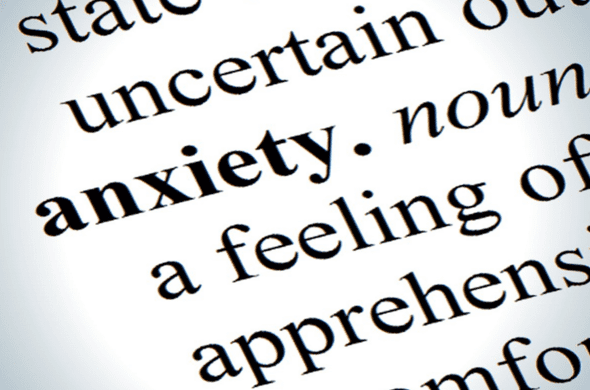Everyone deals with anxiety at some point in their lives. When you’re getting ready to argue or fight, it is that exact emotion that causes your hands to shake. It can cause you to start to feel warm or even for you to start sweating a little. Those are our bodies’ natural reactions to anxiety.
Around 40% of people with bipolar disorder also have an anxiety disorder. Did you know there is more than one type of anxiety disorder? I’m not just talking about social anxiety vs. non-social anxiety. There are several different types of anxiety disorders. The ones I’m going to focus on are Panic Disorder, Obsessive Compulsive Disorder (OCD) and Post Traumatic Stress Disorder (PTSD).
Panic Disorder
Have you ever felt like you were having a heart attack? Your chest hurts, you’re short of breath, you may be sweating a little. You may even go to the hospital, and when you do they tell you that it wasn’t a heart attack. You were having a Panic Attack.
Many people have had a panic attack before. What makes it a disorder is when you start having them too often. What is too often? The DSM has determined that if you are having several a day, then you have a panic disorder.
Obsessive Compulsive Disorder
Most people associate OCD with cleaning. But I was informed just recently that not long ago hording was part of the OCD diagnosis in the DSM. They separated it though and made hording a singular diagnosis. OCD can be an obsession of any kind. Whether it is lining things up in orderly fashion, repeatedly checking locks on doors, color coordinating your closet, obsessing over a spreadsheet, arranging cabinets a certain way, etc.….
This is a personal topic for me because I do have OCD. I am the person at the grocery store who stacks her groceries in her shopping cart a certain way, then I have to bag them a certain way, they have to go back in the cart a certain way and of course have to be put up in the fridge and cabinet a particular way. I have a spreadsheet on the computer that I use to budget our bills. I obsess over this spreadsheet. I will go over it several times a day, several times a week – whether anything has actually changed or not. I just need to make sure everything is still working out the way it should. I worry constantly about money. I know, I know everyone worries about money. But I mean to the point that it will actually send me into a depression (I also have bipolar disorder).
One factor of OCD is that the person generally doesn’t realize they are doing the things they are doing and even if they are aware of them, they just cannot control themselves. The only reason I have become so aware of my tendencies is because I have had them pointed out to me repeatedly over the years. These obsessions can cause great anxiety.
Post Traumatic Stress Disorder
It is natural to feel grief, hurt or even pain after a loss or disaster or traumatic event. Some people will have these feelings for a little while and then move on. For others however – the feelings never go away. Women are more likely to develop PTSD than men, but PTSD affects everyone in a devastating way.
There are certain risk factors that can make you more prone to developing PTSD. Some of those risk factors include: whether you already have mental health issues, other anxiety concerns, parents or relatives with PTSD or mental health problems, experiencing long lasting trauma and/or not having a good support system.
Some of the symptoms of PTSD are:
- Intrusive Memories: recurrent, unwanted distressful memories, flashbacks, dreams of the event, distress or physical reactions to something that reminds you of the event.
- Avoidance: trying to avoid thinking or talking about what happened, avoiding people or places.
- Negative Changes in Thinking and Mood: negative thinking about you or others, unable to experience positive emotions, feeling emotionally numb, not enjoying things you once did, feeling hopeless, memory problems, difficulty maintaining close relationships.
- Changes in Emotional Reactions: irritability, angry outburst or aggression, always being on guard, just waiting for something to happen, overwhelming guilt or shame, self-destructive behavior, trouble concentrating or sleeping and being easily startled or frightened.
These are all major symptoms of PTSD. The DSM requires that you show at least one symptom from each category to be diagnosed with PTSD. If someone you know is showing signs of PTSD the best medicine for this condition is talk therapy. Get them in to see someone so they can start working through what they are dealing with. They cannot face this alone.
Speaking from experience, this illness is a demon. It doesn’t fight fair. It will seclude you, and take you away from everything and everyone you know and love. There are a few medicines that can be prescribed to help with the anxiety that this illness creates. But the medicines do not treat all of the symptoms. Talking about whatever it is you are dealing with is the only way you can get it out there and look at it. Face it. We can’t keep it bottled up inside us forever.
Read the rest of Angel’s blogs for IBPF here or you can check out her personal blog here.


